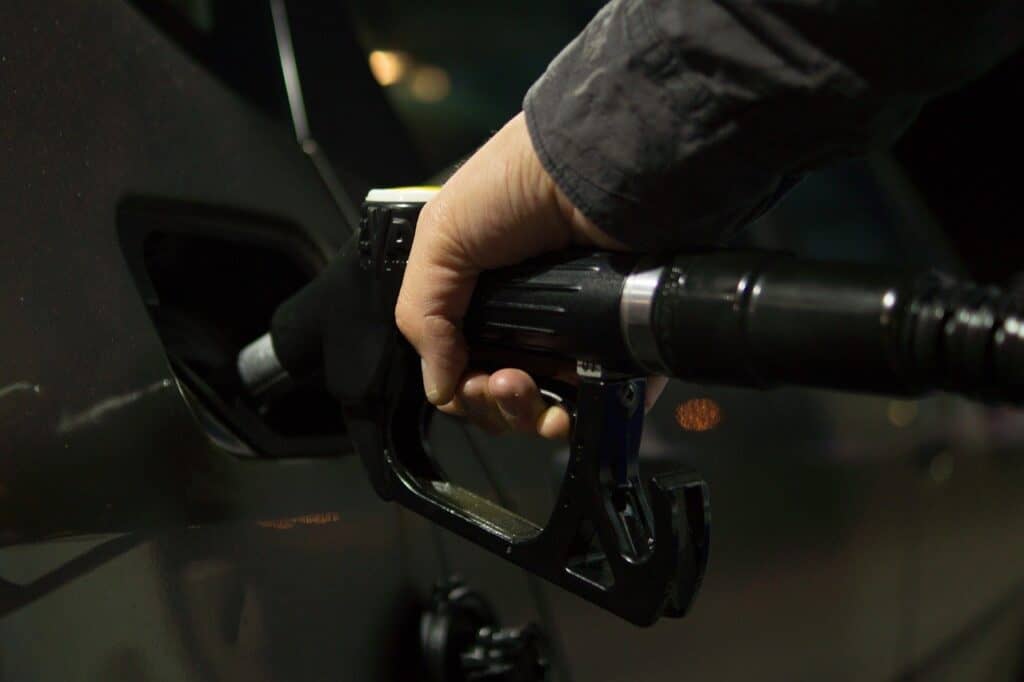Did you know that blood makes up about 7% of your body by weight? It’s the ultimate fueling system; delivering oxygen to every part of our bodies and carrying away waste products to be excreted and stop us from being poisoned by our own biology. But is it possible that we’ve been wandering around with pints of rocket fuel floating through our system and that our blood could catch fire at any moment?
Blood is not flammable and won’t catch on fire. Blood is made up mainly of plasma (55%), which is mostly water (92%) and therefore will ignite or sustain a fire.
Water is used to put our fires, not start them, and so blood will not readily catch fire. We will take a look at what is blood is made of, why it doesn’t burn, as well as the theory behind spontaneous human combustion.
Your # 1 priority is keeping your family safe. As a firefighter, I recommend everyone has updated smoke detectors that don’t require battery changes, like these ones from Kidde, a fire extinguisher, like this one from Amerex, and a fire escape ladder if you have bedrooms above the first floor, I recommend this one from Hausse.
Also read: What Makes Something Flammable?
What Is Blood?

Blood carries oxygen and nutrients around the body to every cell. It also carts away waste products from our metabolic system. To date, there is no artificial substitute for blood – you can’t make it in a laboratory or a factory, it has to be provided by a human body.
Your blood consists of four main elements:
- Red blood cells (erythrocytes)
- White blood cells (leukocytes)
- Plasma
- Platelets (thrombocytes)
Nearly half the volume of your blood is red blood cells (45%), and you produce more than 4 billion red blood cells an hour. The survival rate of a red blood cell is about 120 days, after that it dies and is excreted, and you produce new blood cells to replace it.
They are the oxygen delivery system of your body.
White blood cells, on the other hand, are fewer in number and their job is to be your immune system. They defend your body against invaders.
Plasma is the clear fluid in which the cells and platelets ride, and it contains water, sugar, hormones, proteins, and salts needed for cellular health. It makes up 55% of your blood volume.
Platelets are the reason that when you cut yourself, you don’t bleed to death. They arrive at the source of a wound and then bond together to plug it and allow the body to heal.
In your lifetime, you will pump the equivalent of 1.5 million barrels of blood through your body.
Here is some more good info about blood:
Is It Flammable At All?
Blood is not flammable because it’s mainly made up of water and water doesn’t burn, it actually extinguishes flames.
Could you set fire to someone’s blood?
Well, in theory, if you could evaporate all the water (or at least most of it), what would remain would be basic organic chemicals – mainly made from hydrogen, carbon, oxygen, nitrogen, and possibly a couple of trace elements.
If you were to raise these chemicals to a high enough temperature then, yes, they would catch fire as all of these elements are capable of being burned.
It’s worth noting that human beings are not particularly flammable at any point because of the water content of the cells and our overall system.
However, that brings us to the minor problem in saying this: spontaneous human combustion.
Also read: Firefighters, What Does A Burning Body Smell Like?
What About Spontaneous Human Combustion (SHC)?
Yes, there have been a remarkable number of people who have been found burned to death, with no obvious source of fire available and without burning the room or things around them.
This has been known as “spontaneous human combustion” or SHC.
Proponents of SHC say that the bodies which have been discovered died because they simply “just caught fire”.
Check it out:
The problem with this theory is that it doesn’t fit with our understanding of how the world works.
As we’ve already determined – people aren’t flammable and thus, it seems unlikely that if you can’t deliberately set fire to a person easily, that they would suddenly burst into flame with no effort at all.
Body Fat May Be The Key To This…
So, what is the explanation for this phenomenon?
Well, it appears to be quite simple.
There is one part of a human being that does burn well. It’s something we have in common with many other animals that can catch fire too – it’s our subdermal lipids.
Or in terms that we’d tend to use in day-to-day life, body fat.
Fat burns. Human fat is simply an oil and if it were to get hot enough it would catch on fire.
Spontaneous Human Combustion: An Example
So, imagine that you are a heavy drinker and smoker.
You get into bed with a lit cigarette and you drop that cigarette without noticing it.
We know this happens because in a lot of cases – it sets fire to the bed and many smokers have died because their bedding caught fire.
But in some cases, the cigarette doesn’t land on the bed. It lands on you.
You’re too drunk to notice, but it quickly burns through the skin on say, your belly, and reaches the fat deposit beneath.
This causes that fat to catch fire.
Fat fires burn very rapidly.
But the fire can’t spread from the fat into the rest of the body – because the rest of the body has a high water content and isn’t flammable.
Thus, the fire only burns away the fat deposit and anything in contact with it (like say any clothes you were wearing) and then it extinguishes because it’s unable to spread.
The fire itself was hot enough to reduce the cigarette to ashes too.
This explains why no cigarettes are found around SHC victims and the partially burned state they are discovered in and why the rest of the room doesn’t go up in flames too.
But again, this is just a theory, that may be entirely false.
Human bodies can definitely burn, but blood is not flammable and can even put out a fire, in theory, due to it’s high water content.
Related Articles
Is Soap Flammable? Will it Burn? It Depends…

